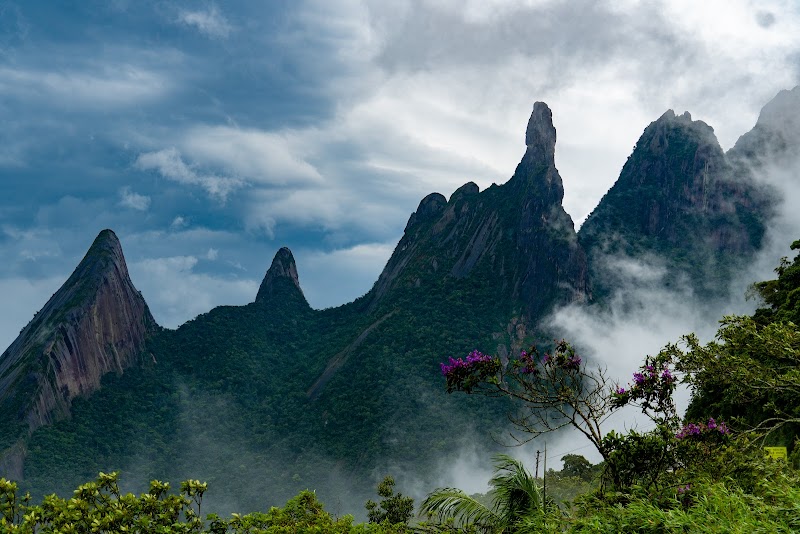
Celebrating São Sebastião: The January Feast and Adventure in Carapebus, Rio de Janeiro
Experience the unique blend of culture and adventure at Carapebus's Feast of São Sebastião each January. Explore spirited processions and forest trails that invite both celebration and scenic challenge in this under-the-radar destination of Rio de Janeiro.
Hydrate Strategically
January’s warm weather demands careful hydration—carry at least two liters of water for the hike and replenish after the trail.
Wear Appropriate Footwear
The trail's uneven dirt and rocky sections require sturdy hiking shoes with gripping soles to prevent slips.
Start Early
Begin your hike early to beat the midday heat and enjoy wildlife activity, including soaring birds of prey.
Respect Local Customs
Engage with the festival respectfully; ask before photographing processions or religious ceremonies to honor community practices.
Celebrating São Sebastião: The January Feast and Adventure in Carapebus, Rio de Janeiro
Every January, Carapebus in Rio de Janeiro pulses with a spirited energy as it honors the Feast of São Sebastião. This cultural event, rooted in deep tradition, offers more than just a religious celebration—it unfolds across the town with colorful processions, local music, and vibrant gatherings that invite both the curious traveler and devoted locals. The feast itself isn’t just about witnessing; it’s about immersing yourself in the lively pace of the community and their fierce devotion to São Sebastião, the town’s patron saint.
The event centers on the main church square where incense mixes with the ocean breeze, and the sounds of drums and chants rise above the chatter. Expect crowds, food stalls with traditional Brazilian treats, and open invitations to join in the dances that stretch late into the evening. São Sebastião’s statues, polished and radiant under the January sun, lead processions that wind through the streets, reflecting a steady rhythm that mirrors the heartbeat of Carapebus.
Around the festivities, nature doesn't remain silent. The nearby trails call hikers out with promises of lightly challenging paths—around 7 kilometers with roughly 350 meters elevation gain—leading through dense Atlantic forest and revealing panoramic views of the bay below. The trail terrain fluctuates between soft dirt tracks, uneven roots, and occasional rocky patches that demand steady footing and attention. Here, the trees lean in like old friends, and the wind dares you forward, pushing through leaves heavy with morning dew.
If you’re planning to combine the cultural feast with an outdoor adventure, timing is key. Begin your hike in the early morning to avoid midday heat and catch raptors circling the cliffs. Carry at least two liters of water and wear sturdy footwear with good grip—this isn’t a path you want to rush or underestimate. The trail acts like a conversation with the land, challenging you to respect its shifts in gradient and texture without overreaching.
Post-hike, Carapebus celebrates you with warm hospitality. Street vendors serve fresh grilled seafood and refreshing drinks that ease tired muscles. Local markets brim with handcrafted souvenirs, and the air hums with stories passed down through generations celebrating mutual respect between the people and their environment.
Taking part in the Feast of São Sebastião in Carapebus is not just attending an event; it is stepping into a living tradition where adventure and culture converge. It’s a practical yet exhilarating chance to test your endurance on forest trails, soak in views that are fiercely themselves, and connect with a community that wears its history proudly. Pack your gear wisely, step steady on the paths, and open yourself to the rhythms of January in this vibrant corner of Rio de Janeiro.
Nearby Trips
All Adventures
Boat Charters
Water Activities
Adventures near Carapebus, Rio de Janeiro
Discover the unique and memorable adventures that make Carapebus, Rio de Janeiro special.
Frequently Asked Questions
When exactly is the Feast of São Sebastião celebrated in Carapebus?
The feast takes place annually in January, typically culminating on January 20th, coinciding with the saint’s day. Events span several days, including religious masses, processions, and community celebrations.
Is the hike near Carapebus suitable for beginners?
The hike is moderate: while not technically challenging, uneven terrain and elevation gain require basic fitness and caution. Beginners should prepare with proper footwear and start early to avoid heat.
Are there any lesser-known viewpoints along the trail?
Yes. About halfway through the trail, a discreet clearing named Mirante do Morro offers sweeping views of the Carapebus bay and distant mountains, perfect for a quiet break away from the festival bustle.
What wildlife might I encounter during my visit?
Expect to see native birds like the king vulture and various tropical songbirds. The Atlantic forest here shelters small mammals and colorful insects, all quietly observing your passage.
What environmental considerations should visitors keep in mind?
Respect the protected forest areas by sticking to marked trails and avoiding litter. The local community values sustainable tourism, especially during the feast, to preserve both culture and nature.
Where are the best places to participate in the Feast festivities?
The central church square is the festival’s heart. Surrounding streets host food stalls and live music, offering the best mix of spiritual engagement and social atmosphere.
Recommended Gear
Sturdy Hiking Shoes
Provides grip and ankle support critical for navigating the varied trail surfaces.
Hydration Pack or Water Bottles
Keeps you hydrated through warm temperatures and moderate exertion.
Light Rain Jacket
Useful against sudden tropical showers common in January afternoons.
Sun Hat and Sunscreen
Protects from intense sun exposure during the hike and festival activities.
Local Insights
Hidden Gems
- "Mirante do Morro viewpoint midway through the forest trail"
- "Secluded bays just outside Carapebus offering tranquil beach spots"
Wildlife
- "King vultures circling the cliffs"
- "Local Atlantic forest songbirds such as the Rufous-browed Peppershrike"
History
"São Sebastião’s feast is rooted in 18th-century colonial traditions, reflecting Carapebus’s mixed indigenous and Portuguese heritage."
